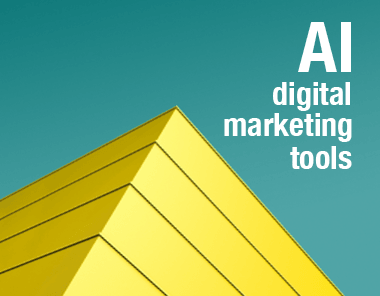 Artificial intelligence (AI) is not a thing of science fiction anymore, and is revolutionizing practically every sector of the economy. From AI algorithms that can save the brain cells of stroke victims to the Way of the Future AI religion, machine learning is here to stay. And thanks to all of those little pieces of data that our customers leave behind when they’re online, AI holds massive potential for digital marketers.
Artificial intelligence (AI) is not a thing of science fiction anymore, and is revolutionizing practically every sector of the economy. From AI algorithms that can save the brain cells of stroke victims to the Way of the Future AI religion, machine learning is here to stay. And thanks to all of those little pieces of data that our customers leave behind when they’re online, AI holds massive potential for digital marketers.
According to Forbes, 84 percent of marketing organizations are implementing or expanding AI in 2018. To digital marketers, that means that it’s time to dig in and look for ways machine learning can help our clients grow revenue, expand their audience, and get more conversions… or risk getting left behind by more savvy digital marketing teams. But where to start? Here are a few ways you can wade into the AI pool.
PPC and Adwords Optimization
AI tools for PPC and Adwords management can help maximize budget and reduce time spent on oh-so-boring repetitive tasks. Optmyzer is one tool that can assist by generating easy-to-understand reports, updating bids, tracking quality scores, and adding important keywords that you might have missed. And it’s built with features to assist services companies, as well as eCommerce stores. Other tools like Cobiro (who just received more funding from the European Commission) can even assist with ad writing using Natural Language Processing, as well as processing and analyzing bid data and adjusting keywords. Tools like these are in addition to the AI features that Google added to Adwords natively last year, specifically around SmartBidding, ad rotation, and in-market audiences, as well as machine learning for display campaigns and reporting.
Social Media
With so much data behind social media, it’s easy to get overwhelmed. But AI-powered tools can help your team analyze that data and give you more time to do the human stuff – like getting creative with your content. From consumer intelligence to social media monitoring to audience building, there are a number of ways you can integrate AI into your social media campaigns and interactions. A few tools to check out:
- Unmetric uses AI to track and analyze brand social media content performance.
- Cortex uncovers patterns using AI and translates insights into actionable direction for your team
- Chatbots for customer service that can respond to questions through your social media. Studies show that 42 percent of customers complaining on social media expect a response in 60 minutes or less, a hard target to hit with a global audience. We digital marketers have to sleep sometimes. Chatbots can handle this round the clock. A few to checkout: Chatfuel, Conversable, and DialogFlow.
- Sensai to improve content and relevance on social posts and events
- Rocco to suggest fresh content likely to improve engagement
On-Site Personalization
If you’re running an eCommerce store, using AI to load product recommendations and personalize the customer experience can deliver a major increase in conversions. In a survey of marketers conducted in 2017 by Evergage, 96 percent of respondents said they believe that personalization helps advance customer relationships, and 88 percent believe that prospects and customers expect a personalized experience. In that same survey, 63 percent of respondents reported personalization increased conversion rates. Check out Emarsys, 4-Tell or Retention Science for more on-site personalization tools. Many of them will work with other channels like social media or email marketing to help improve your customer experience all around and present relevant products to customers when they are most likely to buy.
Content Generation
A few years back, Gartner predicted that by 2018, 20 percent of content would be generated by machine. Well, 2018 is here, and likely you’re reading social media posts and articles generated by Artificial Intelligence on a daily basis – and you probably don’t even notice. Several major news organizations, including the BBC, New York Times, and Reuters are using AI to present news stories to the public on a daily basis. If you’re willing to give AI-generated content a try, check out Articoolo, which will let you purchase by the article, or for a more Enterprise platform, take a look at Quill, which transforms data into automated, human-sounding “Intelligent Narratives.”
This list is just a starting point for marketers who are ready to dip a toe into the AI waters. At Human Element, we’re exploring these solutions to see how we can best deliver better conversion for our clients and stay on the cutting edge of marketing technology.


